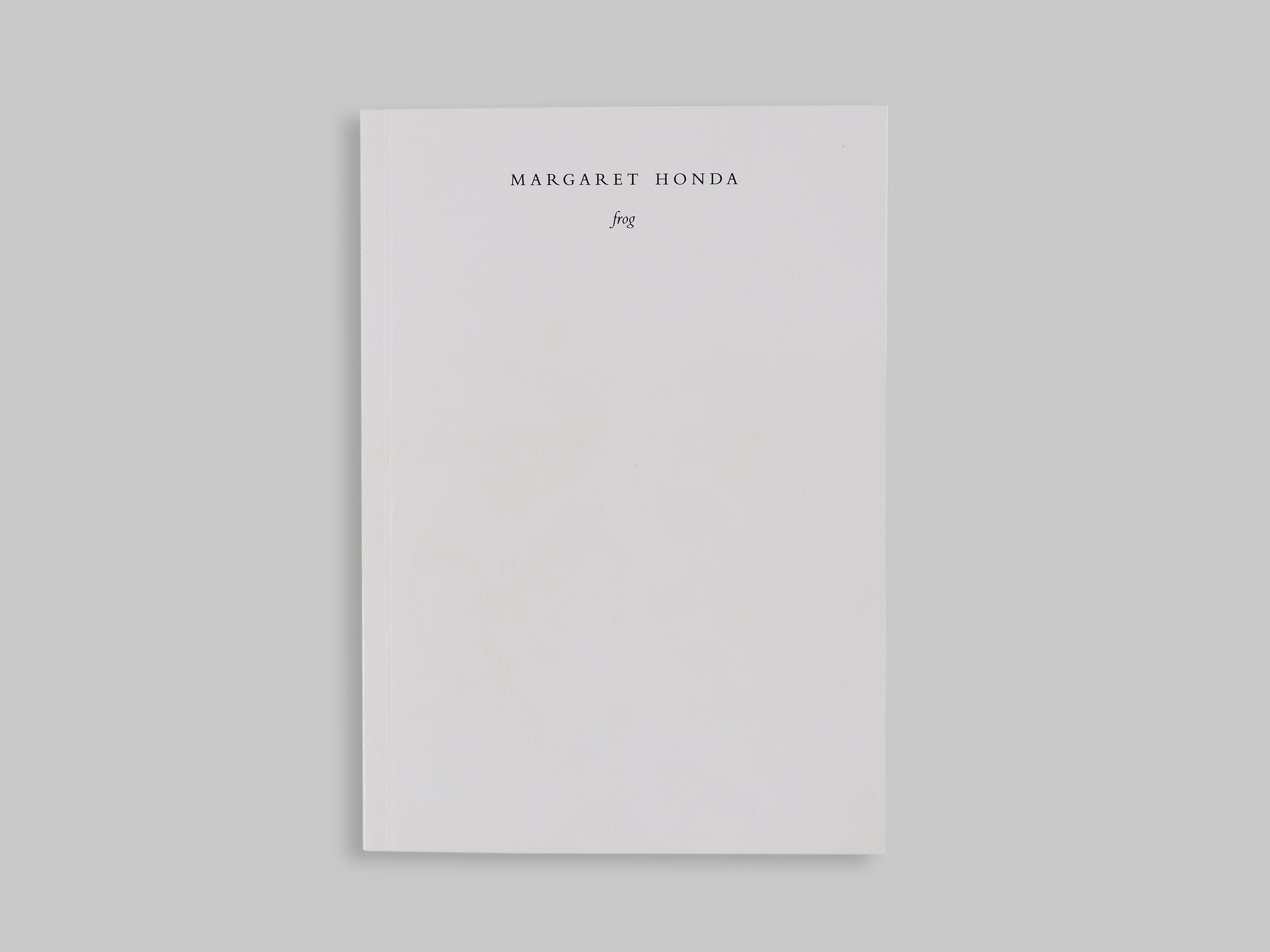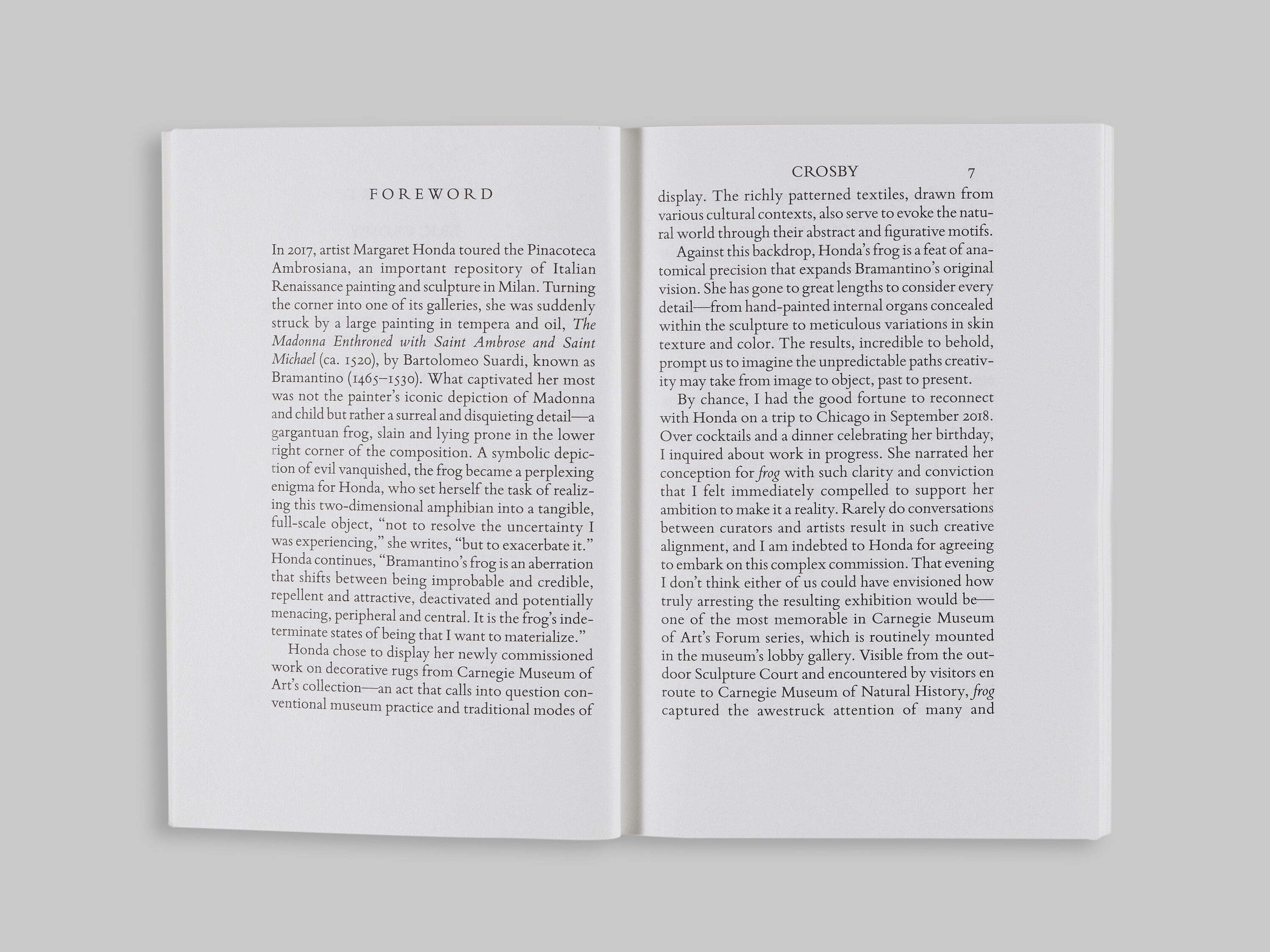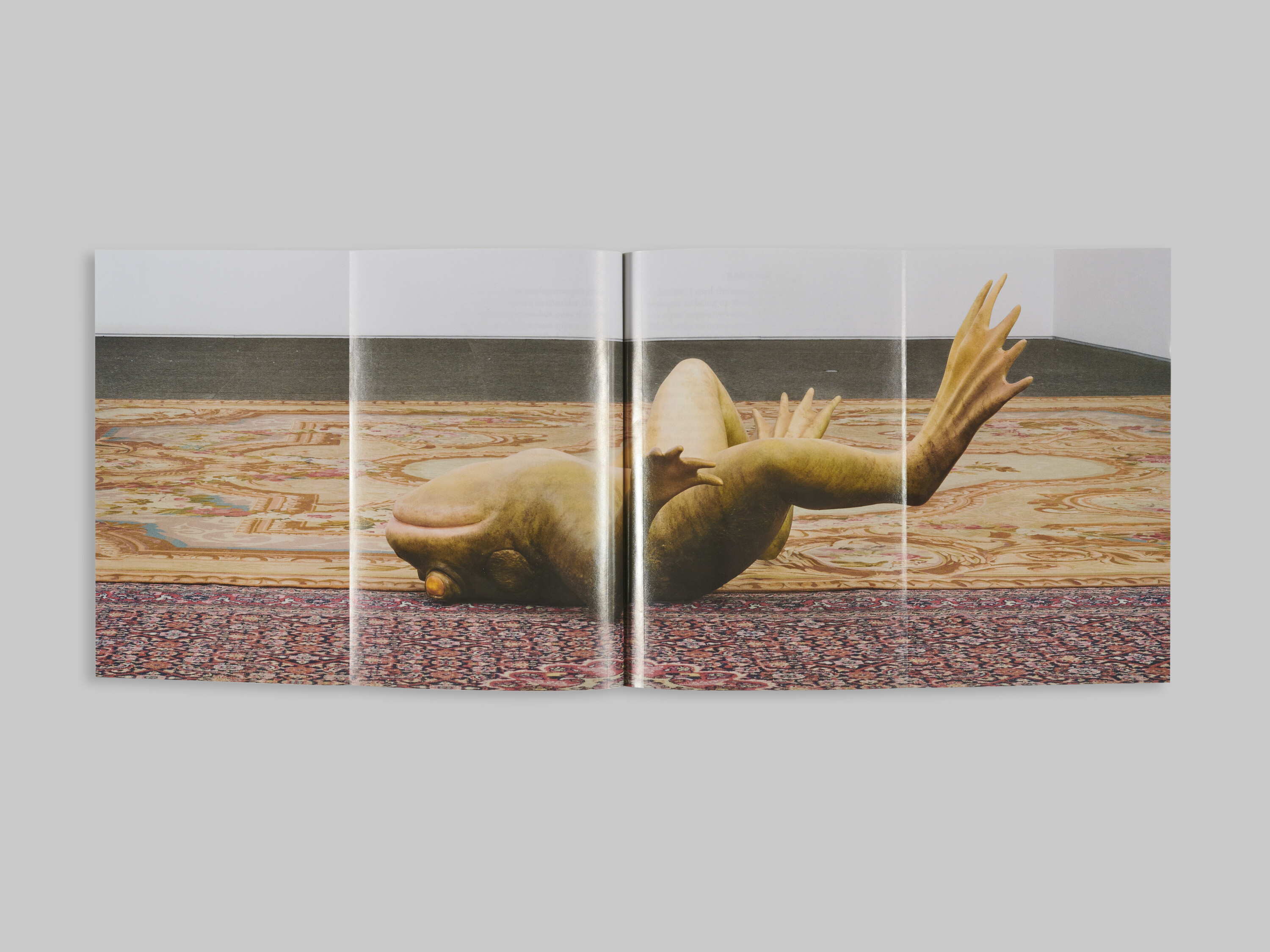


Foreword by Eric Crosby with texts by Leah Mirakhor and Tenzing Barshee, and conversation between curatorial assistant Hannah Turpin, Carnegie Museum of Natural History curator of herpetology Jennifer Sheridan, and Renaissance art historian Christopher Nygren.
Co-published by Inventory Press and Carnegie Museum of Art
ISBN 978-1-941753-31-6
“Honda’s lone, human-size frog, lying supine and pitifully exposed on a bed of luxurious rugs, is easily one of the most unnerving sculptures I’ve seen”—Henriette Huldisch, Artforum
For the 82nd installment of Carnegie Museum of Art’s Forum series, Los Angeles-based artist Margaret Honda created a singular, enigmatic sculpture—a frog rendered in lifelike detail measuring nearly five feet long.
The work is modeled after a frog-like form Honda observed in a Renaissance painting at the Pinacoteca Ambrosiana in Milan. The painting, Bramantino’s Madonna delle Torri (1520), depicts the Madonna and Child enthroned; at their feet lies a slain man and a gargantuan frog with anthropomorphic features. Honda’s sculpture extends beyond surface representation to include the skeleton and internal organs, none of which are visible. At once material and philosophical, her work prompts us to ponder our relationship to art and the world we make.